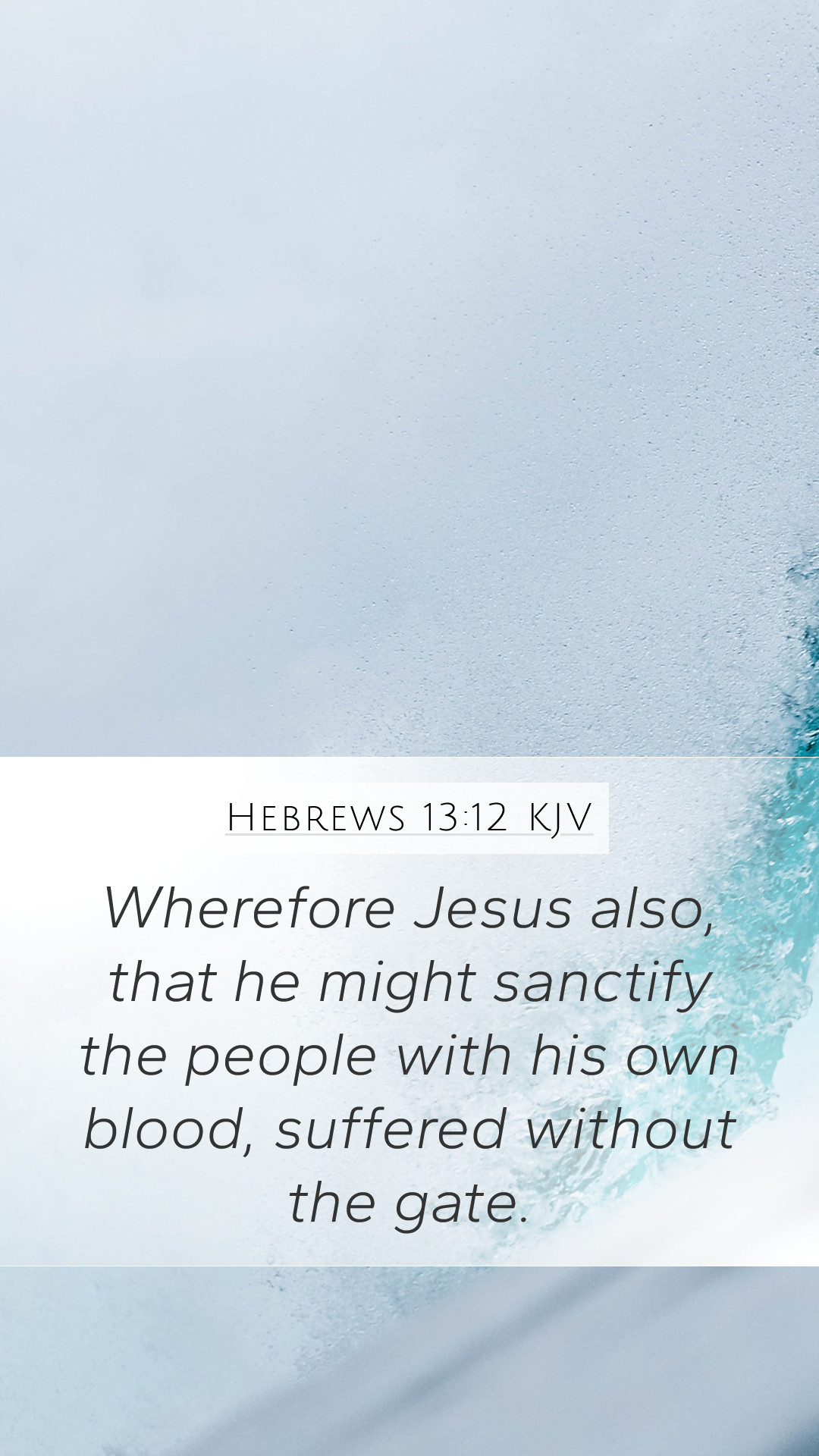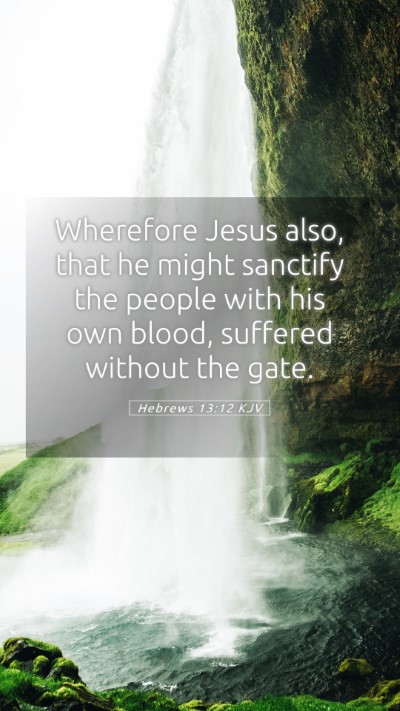Understanding Hebrews 13:12
Hebrews 13:12 states, "Therefore Jesus also, that He might sanctify the people with His own blood, suffered outside the gate." This verse addresses the profound significance of Jesus’ crucifixion and its implications for believers. In this analysis, we draw insights from renowned public domain Bible commentaries, providing a comprehensive understanding of this scripture.
Bible Verse Meanings
In the context of biblical interpretation, Hebrews 13:12 highlights the sacrificial nature of Jesus’ work. Matthew Henry notes that Jesus 'suffered outside the gate' as a symbol of rejection, paralleling how sacrifices were taken outside the camp in the Old Testament. This act not only fulfills prophecy but also emphasizes the shame and reproach that Jesus bore for humanity's sake.
Bible Verse Interpretations
Albert Barnes elaborates on the implications of Jesus' sacrifice as being voluntary and done to atone for humanity's sins. The mention of 'His own blood' signifies the seriousness of the sacrifice, showcasing the depth of Jesus’ love and commitment to humanity’s redemption. It reflects an ongoing theme in Hebrews, where the author calls attention to the contrasting roles of the Old Covenant and the New Covenant established by Christ's sacrifice.
Bible Verse Understanding
Adam Clarke emphasizes the necessity of understanding Jesus's suffering as integral to our sanctification. He points out that Jesus' suffering outside the city symbolizes a divine rejection of the traditions that did not align with God's ultimate plan for salvation. This marks a transition from the old Jewish laws to the new covenant where the righteousness of God is made accessible through faith in Jesus Christ.
Bible Verse Explanations
This verse serves as a reminder to believers of the cost of following Jesus. Both Henry and Clarke stress that to follow Christ, one might also face reproach and be marginalized in society, akin to how Jesus was treated. The call to bear our own cross is inherent in recognizing the weight of the sacrifice Jesus made.
Scripture Analysis
- Historical Context: Understanding the historical background of the Jewish sacrificial system aids in grasping the magnitude of Jesus' sacrifice.
- Theological Implications: The connections between the Old and New Testaments are critical in recognizing Jesus as the fulfillment of the law and the prophets.
- Application to Daily Life: Reflecting on the implications of bearing the cross can inspire believers to live a life of obedience, sacrifice, and service.
Additional Insights
In studying this passage, one can explore various facets that deepen our understanding of Scripture:
- The significance of Jesus' suffering vis-à-vis Old Testament sacrifices.
- How the condemnation and rejection faced by Christians bear resemblance to Christ’s experience.
- The hope that springs from understanding Jesus' resurrection, affirming His victory over sin and death.
Related Bible Cross References
- Leviticus 16:27: Discusses the act of sending the scapegoat into the wilderness, reflecting the sacrificial nature of atonement.
- Matthew 27:32-33: Illustrates Jesus carrying His cross and being crucified outside Jerusalem.
- Philippians 2:8: Highlights the humility of Christ as He becomes obedient to the point of death.
Conclusion
Hebrews 13:12 encapsulates essential aspects of the Christian faith, from the sacrificial love of Jesus to the call for personal discipleship and sanctification. Through careful study and reflection, believers are encouraged to embrace the implications of this passage, ultimately leading to a deeper relationship with God. For those seeking bible study insights and bible verse explanations, understanding Hebrews 13:12 provides a meaningful framework for navigating one’s faith journey.


